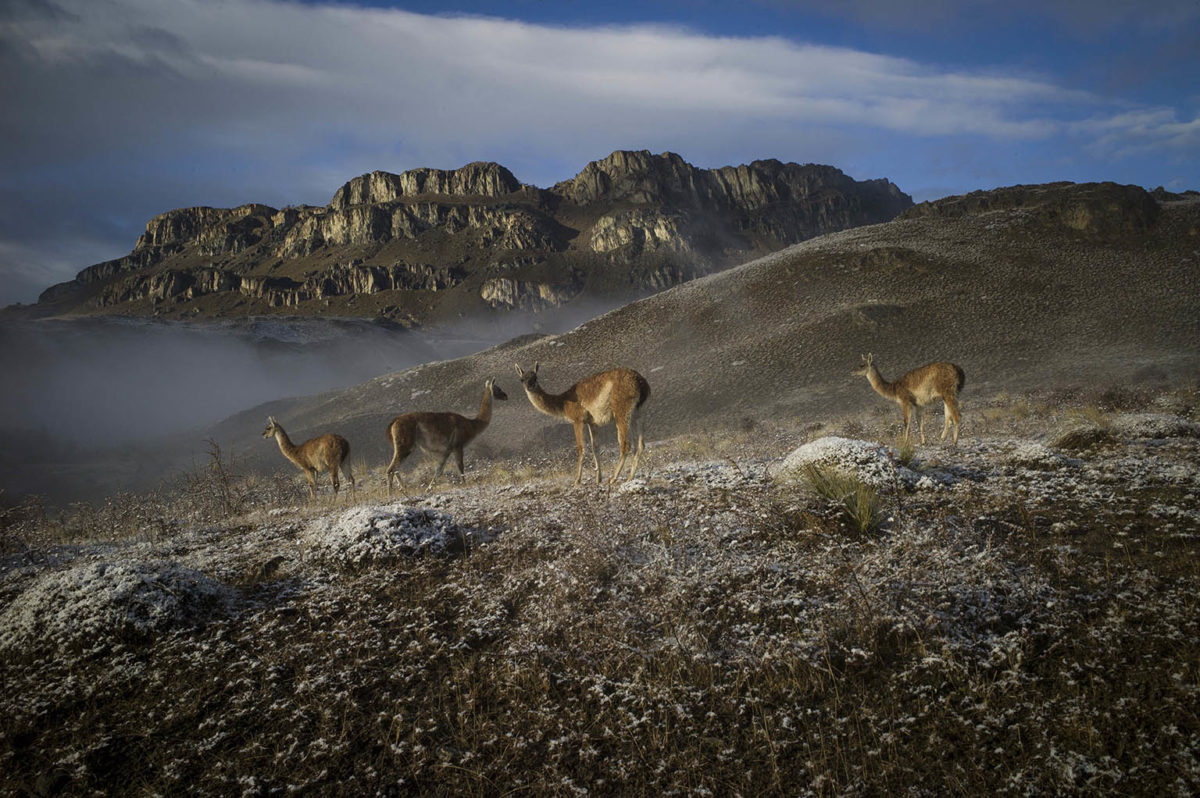In the early 1990s, using the money they earned from their leadership roles at Patagonia Inc., The North Face, and Esprit, Kris and Doug Tompkins began buying up vast amounts of land in Chile and Argentina and setting it aside for conservation. Their acquisition of large blocks of forest, wetlands, and steppe — along with their plan to do “nothing” with it in terms of logging, mining, or agriculture — raised suspicions that they had nefarious intentions. In Chile, their phones were tapped, their movements monitored, and their property subject to military flyovers.
After an intense few years, the public and government came to understand the Tompkins’ aim of protecting and restoring wilderness so it could be enjoyed by everyone. Since the early 2000s, their non-profit Tompkins Conservation has donated over 800,000 hectares (2 million acres) of wilderness in Chile and Argentina, which spurred the permanent protection of nearly 6 million hectares (15 million acres) and the establishment of 13 new national parks.

The Tompkins had performed “a kind of capitalist jujitsu move” as Kris Tompkins put it in her 2020 TED talk.
“From where we sat, we saw the dark side of industrial growth. And when industrial world views are applied to natural systems that support all life, we begin to treat the Earth as a factory that produces all the things that we think we need,” she said. “As we’re all painfully aware, the consequences of that worldview are destructive to human welfare, our climate systems and to wildlife. Doug called it the price of progress. That’s how we saw things, and we wanted to be a part of the resistance, pushing up against all of those trends.”
“We deployed private wealth from our business lives and deployed it to protect nature from being devoured by the hand of the global economy.”
After Doug Tompkins’s death in a kayak accident in 2015, Tompkins Conservation accelerated this work, establishing new marine national parks covering about 10 million hectares (25 million acres) in the southern Atlantic Ocean and redoubling efforts to rewild protected areas, including restoring big predators like jaguar and puma that had been eliminated from these lands.
“Fifteen years ago, we asked ourselves, ‘Beyond protecting landscape, what do we really have to do to create fully functioning ecosystems?’ And we began to ask ourselves, wherever we were working, who’s missing, what species had disappeared or whose numbers were low and fragile. We also had to ask, ‘How do we eliminate the very reason that these species went extinct in the first place?’” Tompkins explained in her TED talk. “What seems so obvious now was a complete thunderbolt for us. And it changed the nature of everything we do, completely. Unless all the members of the community are present and flourishing, it’s impossible for us to leave behind fully functioning ecosystems.”

Kris Tompkins says that rewilding efforts have faced less opposition than her and Doug’s land acquisition in the early 1990s. She says even the jaguar — the largest terrestrial predator in the Americas — has been welcomed back by some communities.
“Of all the top predator species, [the jaguar] was the easiest socially and culturally to bring back because the ranchers of Corrientes province [in Argentina] have always seen the jaguar, which has been missing since the 1930s, as their kind of mascot or spirit. Their boldness and strength is represented through the jaguar, which none of them have seen for 90 years,” she told Mongabay. “That was a real shock. We were really prepared for years and years of preparing ourselves and the province and the country for the return of these jaguars.”
“We had much more trouble with large-scale land acquisition in the beginning than we have with rewilding extirpated species.”
Kris Tompkins spoke about her organization’s conservation work, rewilding, and the costs of our current industrial model during a February 2021 conversation with Mongabay.

